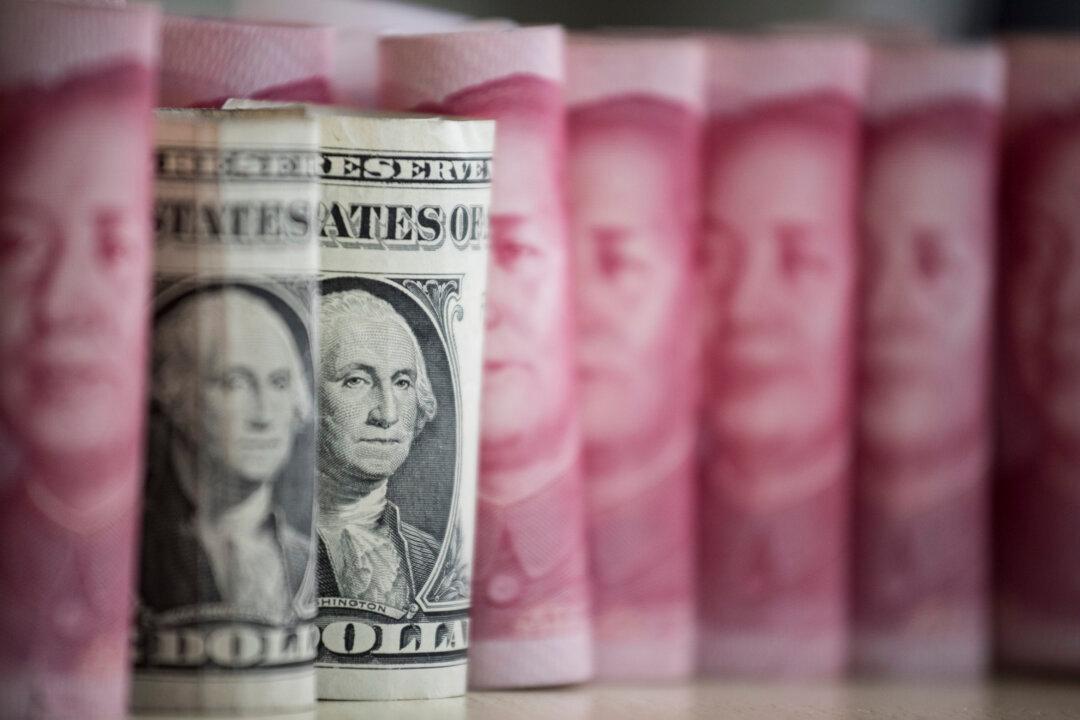Russia is easing its dependence on the U.S. dollar while quickly growing reliant on the Chinese yuan, which could turn out to be either a boon for Moscow or a substantial risk, experts warn.
Over the past year, the Russian economy has been restricted from Western financial networks and has faced economic and political sanctions over its invasion of Ukraine in February 2022. Russia also had been prohibited from using the U.S. dollar, forcing the Kremlin to turn to the Chinese yuan as an alternative.





